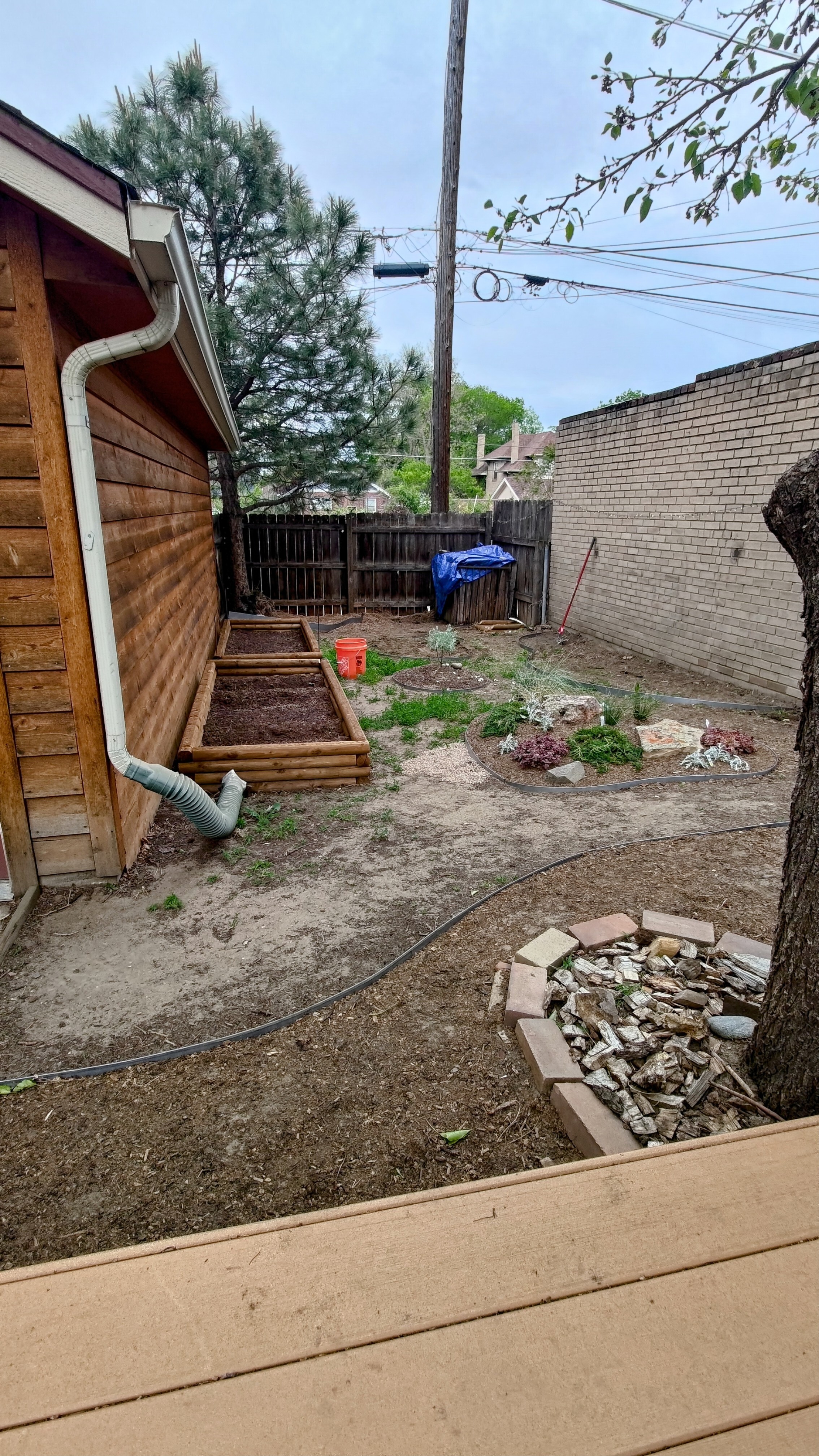this post was submitted on 20 May 2024
226 points (99.1% liked)
Gardening
3402 readers
1 users here now
Your Ultimate Gardening Guide.
Rules
- Be respectful and inclusive.
- No harassment, hate speech, or trolling.
- Engage in constructive discussions.
- Share relevant content.
- Follow guidelines and moderators' instructions.
- Use appropriate language and tone.
- Report violations.
- Foster a continuous learning environment.
founded 1 year ago
MODERATORS
you are viewing a single comment's thread
view the rest of the comments
view the rest of the comments

Personally, I would put down some lawn - yeah it's more maintenance than gravel but it's much easier on the feet and simply looks more vibrant and alive.
And I can only recommend doing something about that brick wall, I wouldn't want to stare at a wall the whole time when relaxing in my garden. If you search for "living wall", you'll find plenty of suggestions.
Confirmations on your new home!
I live in a dry climate with water restrictions most of the warm months, so a traditional lawn is not a great option. Will probably end up going with pea gravel or breeze, I don't mind it barefoot.
Love the idea of the living wall!
Look into local clover varieties, less maintenance, nicer than grass underfoot and better for bugs.
Yeah, that possibility had occurred to me right after posting, too. There are drought resistant grasses, but if there are already restrictions in place, it might make sense to plan ahead and simply patch the gravel with some low water plants.
IMHO, adding a few plants to the gravel really breaks up that otherwise somewhat sterile look. I'm a big fan of Japanese dry gardens which use a lot of gravel and rock, but those are meticulously planned and become sculptures more so than gardens. In residential garden planning, people often create a barren landscape by simply piling up gravel in a large area.
If you like succulents/cactii, those are always an option, but there are plenty of other plants, too. I tried to look for some examples and I think this page has a bunch of useful images on a single page:
https://www.homedesigninspired.com/32-stunning-low-water-landscaping-ideas-for-your-garden/
On related "trick": there are apps that recognize plants from a picture on your phone. I originally got one to use during hikes, but turns out they can also help when planning a garden. If you see something you like online but no mention of what it is, simply save the image, crop and run through the app. I use http://plantnet.org ,which can also be used right from the browser.
Another option to consider is a native plant growncover! It'll be low maintenance and won't require mowing.
Some of the no-mow native ground covers, like frogfruit if you're in the southern US, actually get quite tall. We had a very wet spring and my frogfruit lawn got over twelve inches tall before I gave in and mowed it on the highest setting on my mower. I do have the same plant as filler in several beds, though, where it can get as tall as it wants.
The frogfruit would have eventually laid down a bit shorter once the extra moisture dried up, but it was getting to be quite the eye sore.